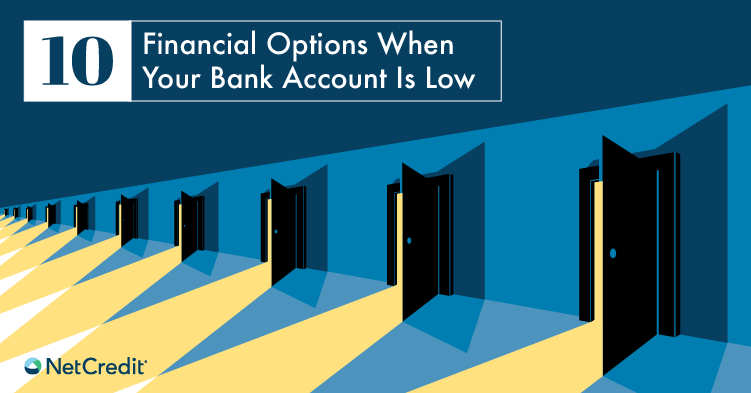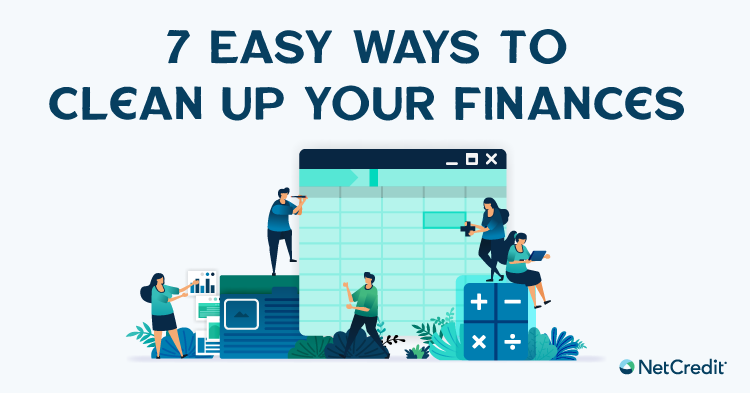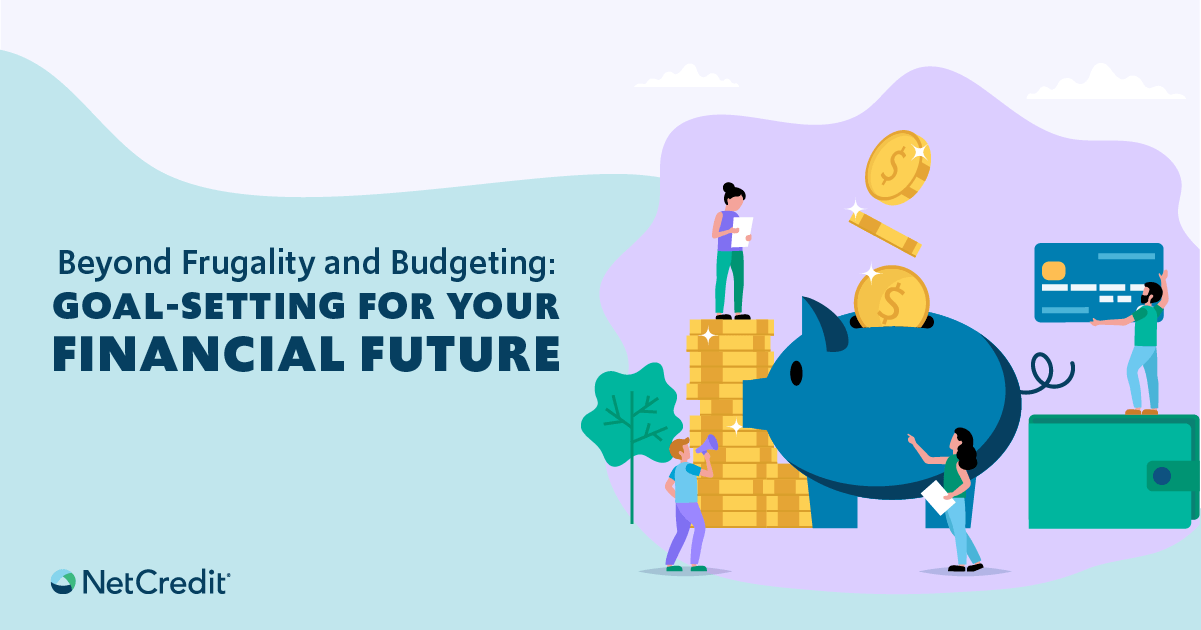Do you often run out of money before your next payday? Is your bank account low when you still have bills to pay? Whether you received a one-time surprise bill, or you regularly feel the bank account shrink at the end of each month, it’s a good idea to take on any financial issues head-on. Ignoring small monetary issues can lead to bigger headaches later down the road. Read on for ten financial options to help ease the strain when your bank account is low.
If You Need a Small Amount of Money To Get By…
Overdraft
A bank overdraft is a type of financing in which your bank covers or partially covers a transaction that exceeds the available balance in your checking account. Overdrafts generally result in overdraft fees and/or other charges for accessing credit on behalf of the bank. Keep in mind that any fees generally apply to every transaction that exceeds your available balance, so using this method to pay for expenses can be costly.
Cut Down Your Expenses
Another option to help manage a low bank account balance is to cut down your expenses in certain spending categories. While there are likely some expenses that don’t have much wiggle room, other categories where you might be able to reduce spending may include:
- Food: Regularly dining out is an expensive habit. However, you can also find ways to save money at the grocery store. Rather than shopping when you’re hungry, try going to the store with a list of items. Aim to use coupons, buy items in season and/or while they’re on sale for a deeper discount.
- Entertainment: Do you have a subscription you’re not using as much? Are there other free alternatives to a monthly streaming payment? Look for ways to find free entertainment in your area whenever possible.
- Housing: Although you may not be able to move to a less expensive home or apartment, renting out an extra room or parking space can help you cut back on housing expenses.
Sell Your Items
You may be able to earn extra money by selling your existing items, including clothing, shoes, furniture, collectibles and other goods. While Facebook Marketplace and Craigslist are good sources to find buyers in your area, you may also be able to use resale apps to list specific items, including:
- Worthy: This app focuses on selling your jewelry and watches. Rather than listing them yourself, you send in items for professional cleaning, authentication and to be listed in an auction.
- Decluttr: If you have an old record or book collection, you may find luck unloading them for some extra cash with Decluttr.
- Tradesy, Poshmark or Depop: These clothing-based listing apps focus on unique clothing, trendy brands and fashionable items for sale. If you have a lot of extra clothing, you may want to list items on one or all three apps.
If You Have Larger Bills to Pay…
Look for a Personal loan
A personal loan is a reliable funding method that can help you pay for unexpected bills and get you back on your feet when the bank account is low. Personal loans are available from several sources, including banks, credit unions and online lenders. If you’re approved for the loan, you can access funding with one lump sum. Some creditors, including online lenders like NetCredit, are able to fund loans quickly to help you find financial relief even faster.
Apply for a Line of Credit
Another funding option that can help you get by when the bank account is low is a revolving line of credit. Like a credit card, this funding method gives you access up to a specific credit limit. As you borrow money and repay the balance, that amount is available again to re-use. In general, you only pay interest on the amount borrowed. Similar to personal loans, lines of credit are available from banks, credit unions and online lenders like NetCredit.
Use a Credit Card
A credit card is another revolving funding method you can use to help pay for expenses and surprise bills when the bank account is low. With this method, you have access to funds up to your account credit limit. As your balance is repaid, that amount is available again for future purchases. You can find credit cards from banks, credit unions and major credit card issuers.
Keep in mind that these funding methods may be subject to interest, fees and other terms for access to capital. If you have specific questions regarding your account, contact your lender directly.
If You Regularly Run Out of Cash Between Paychecks…
Look For Ways To Earn More At Your Current Job
Taking on a second job can be a reliable way to earn extra income each month. With a part-time job, you can pick up extra shifts on the nights or weekends when you’re regularly off work with a primary job. Although you may not have time to take on another job, there may be ways to earn extra money at your existing job, including:
- Pick up extra shifts: Depending on your position, you may be able to sign up for shifts on weekends, holidays or other busy times when extra help is needed.
- Work overtime: If possible, working overtime is a good way to earn a higher wage while you work at your regular job.
Look for a Better Paying Job
While it may not be an easy or fast option, you may be able to secure a higher income in a similar position at a different company. Earning a higher income while retaining frugal habits is one of the best ways to save money over time. For help finding a career in your area, head to SpringFour.
If You Have Trouble Paying Existing Bills…
Consider Debt Consolidation
Debt consolidation is the process of combining your existing credit payments into one more manageable monthly payment. While debt consolidation does not immediately relieve you of a loan payment, you may be able to reduce your monthly payment responsibility in the process. You can consolidate debt with a loan, credit card, line of credit or other funding methods.
Contact Your Creditors
If you can’t meet your existing responsibilities because your checking account is low, it’s a good idea to contact your creditors directly to discuss your options. Staying on top of your credit score is an important step in maintaining your financial wellbeing. If you fall behind on monthly loan payments and other financial responsibilities, your credit score may decrease.
While it’s not a guarantee that the representative can adjust your contract, you may be able to come to an agreement that allows you some wiggle room in your budget. When contacting your lender, consider the following suggestions:
- Ask for a due date extension: You may be able to adjust your payment due date to create more time to manage your next bill.
- Ask about payment deferment: Payment deferment is a temporary loan accommodation that relieves borrowers of payments for a specific period. While it can vary by lender, this option may be reserved for borrowers who’ve recently lost their regular income or job.
The information in this article is provided for educational and informational purposes only, without any express or implied warranty of any kind, including warranties of accuracy, completeness or fitness for any particular purpose. The information in this article is not intended to be and does not constitute financial, legal or any other advice. The information in this article is general in nature and is not specific to you the user or anyone else.






